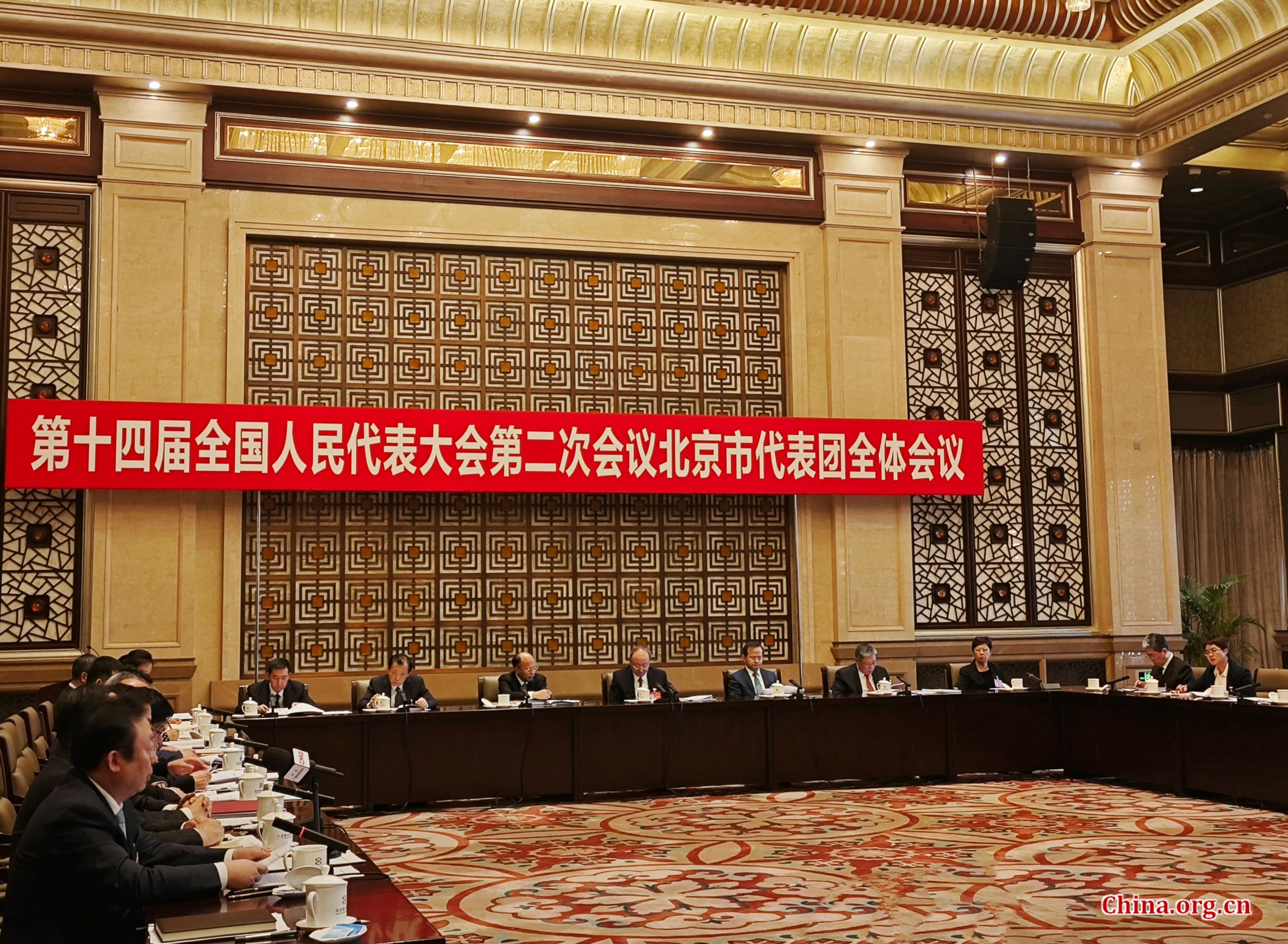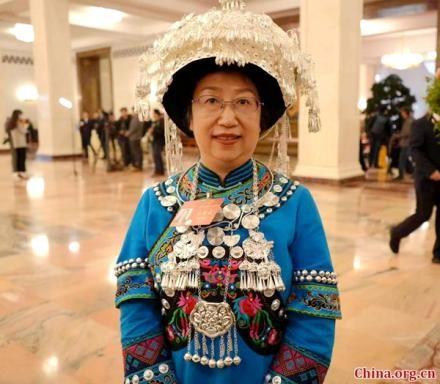
 0 Comment(s)
0 Comment(s) Print
Print E-mail China.org.cn, March 11, 2024
E-mail China.org.cn, March 11, 2024The ongoing annual sessions of China's top legislature and political advisory body draw global attention with their economic and policy decisions. They also offer an opportunity to observe the application of the country's whole-process people's democracy.
The concept of "whole-process people's democracy" differs from Western models that equates democracy solely with elections. It encompasses law-based democratic elections, consultations, decision-making, management, and oversight through a series of laws and institutional arrangements.
This year, over 5,000 national lawmakers and political advisors representing diverse backgrounds have gathered in Beijing to attend the second session of the 14th National People's Congress (NPC) and the second session of the 14th National Committee of the Chinese People's Political Consultative Conference (CPPCC). They fulfill their duties by bringing proposals and suggestions that reflect the public's concerns.
Yi Tong, an NPC deputy specializing in innovation strategy and science and technology policy research, exemplifies this dedication. During her seven years as an NPC deputy, she has conducted in-depth grassroots investigations and gathered numerous suggestions that have translated into 55 suggestions. These suggestions cover areas such as scientific innovation, culture, healthcare, and urban management.
In an interview with China.org.cn, Yi recounted an experience from early 2019 when she and a deputy to the Beijing Municipal People's Congress to initiate a joint investigation. This collaboration resulted in a proposal aimed at creating legislation to protect citizens' personal biometric information.
This suggestion, presented at the "two sessions" in 2019, received significant attention and was adopted by the Legislative Affairs Commission of the NPC Standing Committee.
Following these efforts, China's Civil Code was enacted in May 2020, establishing clear regulations on the collection and use of personal information, including biometric data.
"I received responses from the relevant government bodies for all 55 of my suggestions. Furthermore, the feedback on the insights I've shared in my speeches during the NPC sessions has always been swift and encouraging, often arriving within a couple of days," Yi said. "This form of democracy, which combines efficiency and quality, is indeed heartening."

A group meeting of deputies from the Beijing delegation is held at the second session of the 14th NPC in Beijing, capital of China, March 6, 2024. [Photo by Wang Yiming/China.org.cn]
Shi Haofei, another NPC deputy, echoed this sentiment. He received a letter of appreciation from the National Development and Reform Commission in response to his suggestion about promoting a culture of innovation he submitted during last year's session.
"It wasn't until I became an NPC deputy myself that I realized our whole-process people's democracy extends beyond just the electoral period. It encompasses the entire process of consultations, decision-making, management, and oversight," Shi said.
He explained that by presenting grassroots suggestions at the "two sessions," the central government and relevant departments are equipped to make more informed decisions, noting that "our whole-process people's democracy is authentic and effective."

Zhao Ziyi, an NPC deputy and head of the Guizhou Institute of Urban Economy and Development at the Guizhou University of Finance and Economics, speaks with China.org.cn at the Great Hall of the People in Beijing, March 8, 2024. [Photo by Xu Xiaoxuan/China.org.cn]
Zhao Ziyi, an NPC deputy and head of the Guizhou Institute of Urban Economy and Development at the Guizhou University of Finance and Economics, highlighted another crucial aspect. "Putting people first and ensuring their role in governing the country is a crucial aspect of whole-process people's democracy," said Zhao.
As an ethnic minority NPC deputy, Zhao emphasized the importance of this democratic principle, particularly in fostering harmonious development among China's various ethnic minorities. "The different ethnic groups in China coexist harmoniously, experiencing a sense of fairness and justice because we are all masters of our country, contributing collectively to the nation's development," Zhao stated, expressing a firm belief in the efficiency and effectiveness of whole-process people's democracy.
She added that the harmonious unity among China's various ethnic groups does not suppress but rather safeguards their distinct cultures, which is deeply linked to ensuring whole-process people's democracy.
Wang Chunru, a CPPCC member and researcher at the Institute of Chemistry, Chinese Academy of Sciences, believes that whole-process people's democracy embodies a distinct Chinese characteristic.
This form of democracy emphasizes the principle of collaborative discussion, where everyone's concerns and needs are collectively deliberated upon to find the broadest possible consensus, he said.

Wang Chunru (R), a member of the Chinese People's Political Consultative Conference (CPPCC), speaks with China.org.cn at the Great Hall of the People in Beijing, March 8, 2024. [Photo by Xu Xiaoxuan/China.org.cn]
Ding Shiyong, vice chairman of the Chongqing Municipal Committee of the CPPCC, said, "Whole-process people's democracy represents democracy in its broadest, most genuine, and most effective form. Political consultation exemplifies this by enabling the collection of diverse perspectives and achieving widespread agreement, thereby significantly aiding high-quality development and enhancing social governance."